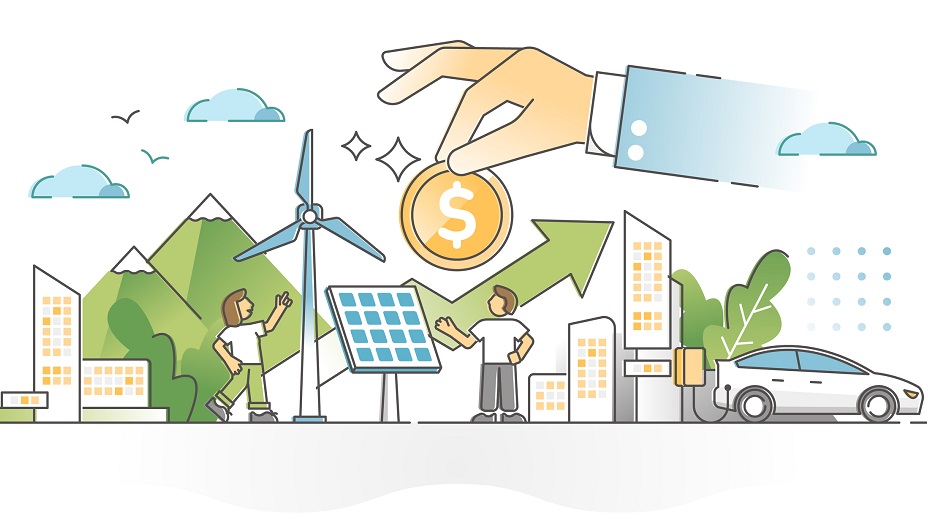If something is scarce and its price rises, and you have blocked entrepreneurs from adding more supply, the best course of action is… attack the existing suppliers. At least according to the UN Secretary General for Climate Hysteria who declared that “The fossil fuel industry is feasting on hundreds of billions of dollars in subsidies and windfall profits while household budgets shrink and our planet burns. Today, I am calling on all developed economies to tax the windfall profits of fossil fuel companies. Those funds should be re-directed in two ways: to countries suffering loss and damage caused by the climate crisis; and to people struggling with rising food and energy prices.” But those profits are the predictable and direct result of governments blockading expansion of fossil fuel supply infrastructure, in the name of the so-called climate crisis. And while we understand government grandees flunking at economics, how to explain a prominent oil executive endorsing the same ideas?
Namely outgoing Shell CEO Ben van Beurden, who just told the Energy Intelligence Forum that with energy prices and profits rising a windfall tax was needed because “You cannot have a market that behaves in such a way... that is going to damage a significant part of society”. Euronews.green added cattily that “A Shell spokesperson later clarified that van Beurden – who makes $8.2m (€8.2 million) per year and will step down in 2023 – was referring to companies and not individuals.” But what you cannot have is a market that does not alleviate shortages because governments clobber anyone who tries to produce and sell things people desperately need.
The story about the UN chief, we note in irritated passing, was “Curated by The Science Desk” at Flipboard. But pompous rhetoric doesn’t make it more sensible. Including that bit where the planet “burns” (from a guy who also famously thinks much of it is under water as well as on fire). And as Willis Eschenbach noted irritably about California governor Gavin Newsom’s predictable support for this economically nonsensical proposal, “Right, because it's a well-known economic principle that increasing the taxes on a company always makes them lower their prices”.
Guterres is so woke he need never drink coffee again. As the BBC explains, “Antonio Guterres told the General Assembly that polluters should pay for the impact of climate-related events. This question of who funds these losses has long dogged international negotiations. Poor countries say the rich should pay because of their historic carbon emissions. But richer nations reject any calls for compensation. Arguments over this question are likely to dominate discussions at the forthcoming COP27 summit in Egypt.”
Doubtless the result will be much acrimony amid the hors d’oeuvres and virtue signals. (A recent emailed fundraising pitch from the Guardian featured their “environment correspondent” Fiona Harvey saying “I go to climate summits – so you don’t have to” but given their habit of featuring luxury hotels in places like Sharm El-Sheik, and expense accounts, we are willing to spare her the ordeal and go ourselves.) And COP27 will also achieve very little progress in altering historic carbon emissions, the latest excuse for letting poor countries blast out GHGs in quantities that make a mockery of international conferences dedicated to curtailing them, because any sensible alarmist would be trying to change what might happen not what already did.
Meanwhile Euronews.green stated as if it were known fact, rather than feeble evasion, that “The main factor behind the energy price increase is the war on Ukraine.” Not the decades-long war of Western governments against fossil fuels that has reduced supply and in a totally unrelated development in the minds of people who slept through any economics class they ever took, pushed up prices. That can continue unabated provided, and it seems to be a key point, any firm that responds by trying to get customers the fuel they desperately need is robbed both coming and going until it stops.
To give him credit, up to a point, Bernardus Cornelis Adriana Margriet “Ben” van Beurden may be angling for a prestigious job with, say, the UN after he leaves Shell with his pockets full. Or merely to increase his access to elite social gatherings in which climate alarmism is a must-have accessory, now that he no longer has the grubby task of running and defending an oil company.
As Wikipedia notes snarkily:
“During his tenure as head of Shell, the company was ordered by a Netherlands court to reduce its carbon emissions by 45% by 2030. Van Beurden described the ruling as ‘unreasonable’ and said the company had no intentions to meet the court-ordered climate targets. At the same time, Shell’s profits were rising sharply, the company raised its dividend by almost 40%, and kickstarted share buybacks worth $2 billion.”
Or maybe he’s just trying to keep the torches and pitchforks at the gate. But as Winston Churchill said of appeasers in 1940, “Each one hopes that if he feeds the crocodile enough, the crocodile will eat him last. All of them hope that the storm will pass before their turn comes to be devoured.”
For van Beurden it may work out, as eight million Euros a year will buy a lot of earplugs to keep out the screams of shareholders. But they might want to ask whether this man really has their best interests at heart, or head. As for Denmark forking over 100 million Danish crowns (which sounds generous until you realize it’s just €13.4 million, or that not one crown went to an actual poor country) for “loss and damage’ compensation for those in the most climate vulnerable regions of the world”, well, they of all nations shouldn’t need to be reminded what Kipling said about Danegeld.



“You cannot have a market that behaves in such a way... that is going to damage a significant part of society”.
No, and they don't. The defining characteristic of a market is voluntary exchange, and where exchange is voluntary it must benefit all parties to it or it won't take place. If energy supply is damaging a significant part of society, it can only be the result of a natural disaster or governments fiddling with the incentives. Clearly, in the present instance, the damage stems from governments messing with incentives.